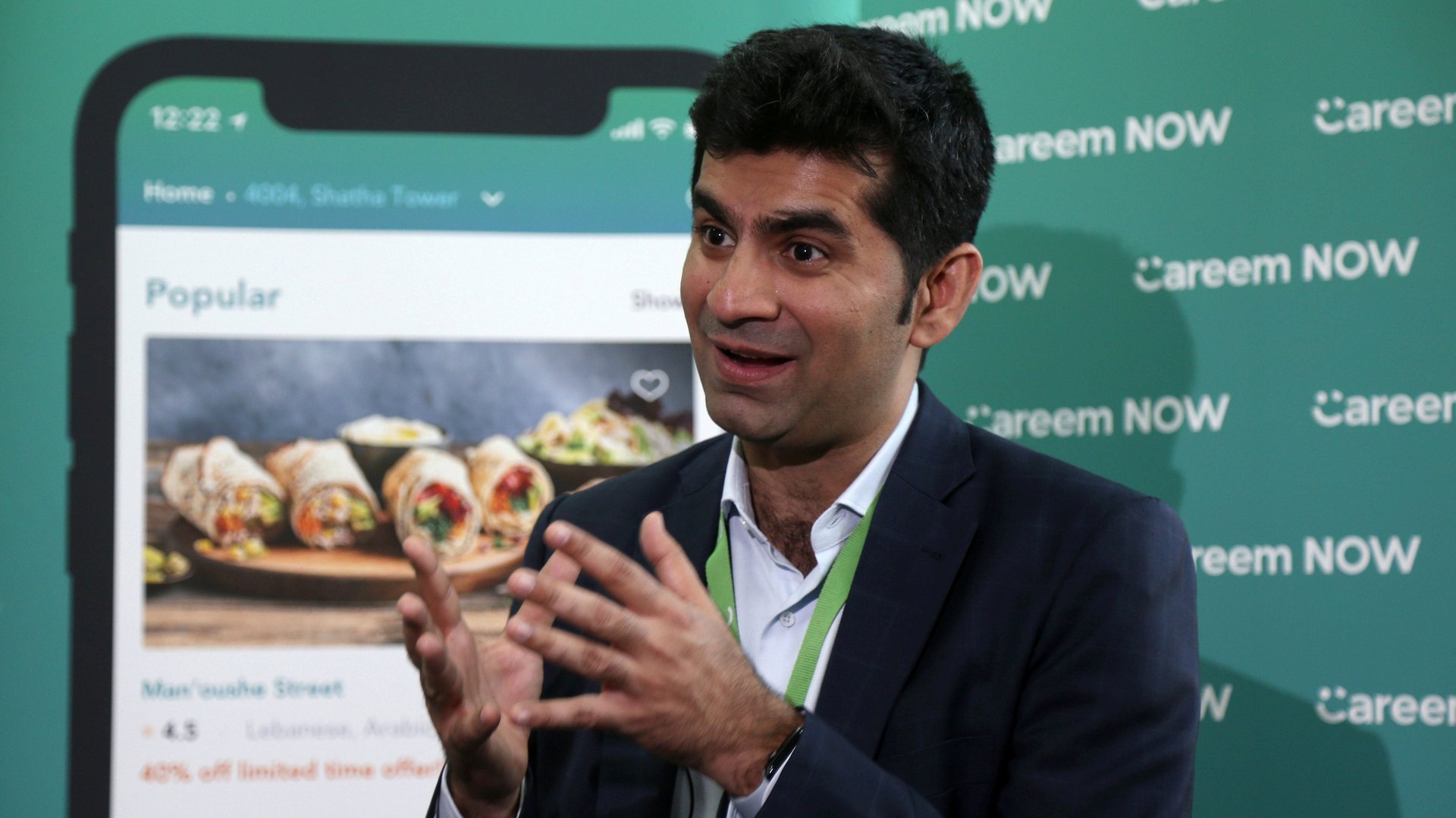Uber is finally buying, not selling to, a major international rival
Uber is buying Middle East rival Careem for $3.1 billion, with a combination of cash and debt. The company is paying $1.4 billion in cash and $1.7 billion in notes that convert at $55 a share (paywall), 12% higher than the $49-a-share investors paid in Uber’s September 2018 financing.


Uber is buying Middle East rival Careem for $3.1 billion, with a combination of cash and debt. The company is paying $1.4 billion in cash and $1.7 billion in notes that convert at $55 a share (paywall), 12% higher than the $49-a-share investors paid in Uber’s September 2018 financing.
Careem co-founder and CEO Mudassir Sheikha will stay on to lead Careem, with Careem and Uber operating as independent brands. The deal consolidates Uber’s advantage in a region of some 400 million people—Careem’s major markets include Egypt, Jordan, Pakistan, Saudi Arabia, and the United Arab Emirates—as well as in the home of one of its biggest backers, the Saudi Public Investment Fund, which gave Uber a previously unheard of $3.5 billion in 2016. The Saudi sovereign wealth fund is also the primary financier of Softbank’s Vision Fund, another major Uber investor.
The Uber-Careem deal is subject to regulatory approval in multiple countries, which isn’t expected before the first quarter of 2020.
In a memo to staff sent out shortly before midnight PT on March 25, Uber CEO Dara Khosroswhahi said he’d gotten to know Careem co-founders Sheikha and Magnus Olsson. “They are first-class entrepreneurs who share our platform vision and, like us, have launched a wide range of products—from digital payments to food delivery—to serve customers,” he wrote.
Buying Careem is an important step for Uber, which has a history of ceding to its international rivals. In China, Uber sold its operations to Didi Chuxing in August 2016 in exchange for a 17.5% stake in the Chinese ride-hail company. In Russia, Uber sold to search giant Yandex, in a deal valued at $3.7 billion that gave Uber a 36.6% stake in the merged entity. In Southeast Asia, Uber sold to Grab in March 2018 in a deal that gave Uber a 27.5% stake in Grab and Khosrowshahi a seat on the company’s board. The Grab deal received intense scrutiny from Singapore regulators, who declared it anticompetitive and threatened to block it before issuing restrictions and minor fines to each company instead.
Each of these international mergers ended a costly battle in which warring ride-hail companies tried to best the other player first and foremost by outspending them. That was expensive for the companies but also for their investors, some of whom, like Softbank, had stakes in both sides and stood to benefit more from picking a winner than letting regional rivals continue bleeding each other dry.
Uber’s situation in the Middle East wasn’t any different. In both the second and third quarters of 2018, Uber pointed to the Middle East as an aggressive investment in disclosures to investors and cited it as a reason for escalating losses. (Uber reported a net loss of $891 million in the second quarter last year and $1.1 billion in the third.) The competition was also costly for Careem, which had raised about $775 million, most recently $200 million from existing investors in October.
At the World Economic Forum in Davos in January, the head of Kingdom Holding, Prince Alwaleed Bin Talal’s investment firm and one of Careem’s biggest investors, said the firm supported an Uber-Careem merger.